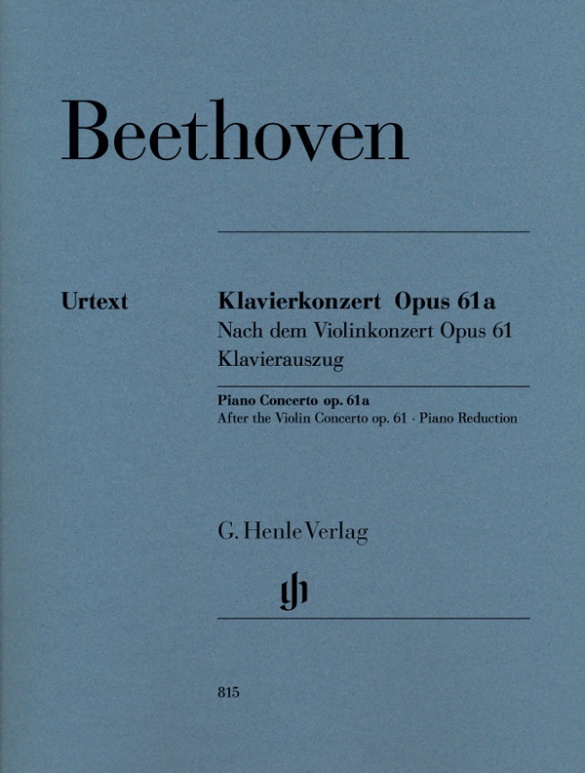

Ludwig van Beethoven
Piano Concerto op. 61a after the Violin Concerto op. 61
Very few musicians are aware of the fact that Beethoven arranged his violin concerto also as a piano concerto. It is only recently that some pianists have discovered this truly rewarding work. Clementi, the London composer and publisher, had heard about the première of the violin concerto and probably sensed its potential. He asked Beethoven for a piano version, which was actually also published in 1808, at the same time as the original. Several important cadenzas had been especially composed for it; the one for the first movement is accompanied by the timpani – a unique and original touch! Our edition (piano reduction and study score) contains the text from the Complete Edition of Beethoven’s Works.
Content/Details
(Explanation)
About the Composer
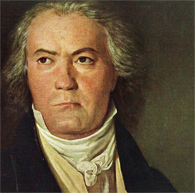
Ludwig van Beethoven
No composer has had as profound and sustained an influence on immediately following generations to the present day as Beethoven. His instrumental music, especially his symphonies, served as touchstones for symphonic composition throughout the nineteenth century. The extraordinarily high standard of his music and his relative independence as a freelance composer have led to his being characterized as the greatest composer of all time.
| 1770 | Baptized in Bonn on December 17, thus probably born on December 16, the son of Johann van Beethoven, a tenor in the court chapel of the prince-elector. First musical instruction from his father. |
| 1778 | First public performance. |
| around 1780 | Musical training with the deputy court organist Christian Gottlob Neefe, who in 1783 presented him in Cramer’s “Magazin der Musik” as a second Mozart. |
| 1782 | Acquaintance with the Breuning family, where his literary interest is aroused. First publication: Piano Variations in C minor on a March by Dressler, WoO 63. |
| 1783 | Harpsichordist in the court chapel; 1784 assistant to the court organist. |
| 1787 | Journey to Vienna. Here he very likely meets Mozart, who probably gives him some lessons. After a short while he must return home to his mother, who is ill with tuberculosis. |
| 1792 | He travels a second time to Vienna, where he will remain until the end of his life. Count von Waldstein sends him on his way with the famous words: “With steady diligence you will receive Mozart’s spirit from Haydn's hands.” In Vienna he studies with Haydn, Albrechtsberger, Schuppanzigh, and Salieri. As a pupil of Joseph Haydn, he achieves extraordinary recognition among the Viennese nobility and receives financial support. Great demand for his compositions from publishing houses: chamber music and piano sonatas from the Bonn and early Viennese years are issued. His first works printed in Vienna (among them the piano sonatas, Op. 2) already bear the hallmark of his compositional style: a forward-advancing, spirited, process-related character. |
| 1796 | Concert tours to Prague, Berlin, Leipzig, and Dresden, which cement his fame. |
| 1798 | Piano Sonata in C Minor, “Pathétique,” Op. 13. |
| 1798–1800 | String quartets, Op. 18. |
| 1799/1800 | Symphony No. 1 in C major, Op. 21 |
| 1795/1800 | Piano Concerto No. 1 in C major, Op. 15 |
| 1800–01 | Piano sonatas, Op. 27, “quasi una fantasia,” including the Moonlight Sonata, Op. 27 No. 2. |
| 1801 | Composition of the Symphony No. 2 in D major, Op. 36 (until 1802). Publication of the Piano Concerto No. 2 in B-flat major, Op. 19. |
| 1801/02 | Crisis brought on by incipient hearing loss, documented in the “Heiligenstadt Testament.” Thereafter he begins, by his own admission, a “New Path” in his compositions, reflected particularly in the piano sonatas, Op. 31 (including the Tempest Sonata); the piano variations, Op. 34 and 35; and the Symphony No. 3 in E-flat major, “Eroica,” Op. 55: they are characterized by enhanced structural development as well as by the use of Baroque techniques and models from other genres. |
| 1803–10/12 | Frenzy of creativity; these years are dubbed Beethoven’s “heroic period”. Written during this phase are Symphonies Nos. 3 through 8 (Opp. 55, 60, 67, 68, 92, 93); Piano Concerti Nos. 3 through 5 (Opp. 37, 58, 73); the Violin Concerto in D major, Op. 61; the Triple Concerto, Op. 56; string quartets (the Razumovsky quartets, Op. 59; the Harp Quartet in E-flat major, Op. 74; the String Quartet in F minor, “serioso,” Op. 95); piano trios (among them the “Ghost” Trio, Op. 70); piano sonatas (including the Waldstein Sonata in C major, Op. 53; the Appassionata in F minor, Op. 57; and “Les Adieux” in E-flat major, Op. 81a); songs (including “An die Hoffnung,” Op. 32); the Mass in C major (Op. 86); and the opera “Fidelio” (Op. 72, first version 1804/5). |
| 1808/09 | Beethoven rejects an offer to become the First Kapellmeister at the court in Kassel because his patrons, Archduke Rudolph, Prince Kinsky, and Prince Lobkowitz, provide him with a comparable yearly salary. |
| 1811/12 | Travels to the spa at Teplitz, where he meets Goethe. In 1812, the letter to the “immortal beloved,” whose identity (Antonie Brentano or Josephine Deym) is still uncertain. |
| 1814 | Piano Sonata in E minor, Op. 90; third version of the opera “Fidelio.” Extraordinarily successful concert with Symphonies Nos. 7 and 8. Still, financial crisis brought about by currency devaluation and the absence of yearly stipends from Kinsky and Lobkowitz. |
| 1815 | Death of his brother Caspar Carl and the beginning of the years-long battle for the guardianship of his nephew Karl. |
| 1816 | Song cycle “An die ferne Geliebte,” Op. 98; Piano Sonata in A major, Op. 101. |
| 1817–18 | Hammerklavier Sonata in B-flat major, Op. 106. |
| 1818 | Beethoven begins keeping conversation books due to increasing hearing loss. |
| 1819–23 | Missa solemnis, Op. 123. |
| 1819/23 | Diabelli Variations, Op. 120. |
| 1820 | Piano Sonata in E major, Op. 109, marks the beginning of his glorious late period, which is characterized by exceeding the boundaries of forms, by extreme pitch registers, advanced harmonies, and an increased penchant for contrapuntal forms such as fugue; standing in opposition to the propensity for esotericism in his chamber music is the monumentality of Symphony No. 9. |
| 1821/22 | Piano Sonatas in A-flat major, Op. 110 (with fugue in the final movement), and C minor, Op. 111 (reduction to two movements). |
| 1822–26 | String quartets, Opp. 127, 130, 131, 132, 135, as well as the Grosse Fuge, Op. 133, which originally formed the final movement of Op. 130. |
| 1823/24 | Completion of the Symphony No. 9 in D minor, Op. 125, which for the first time in the history of the genre includes voice parts (Schiller’s “Ode to Joy”). It will become the most famous and most frequently played symphony of all time. |
| 1827 | Death in Vienna on March 26. |
About the Authors
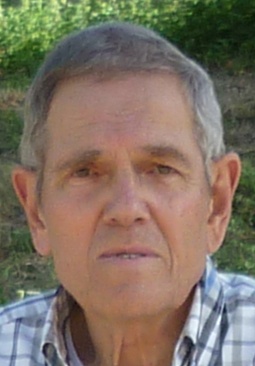
Hans-Werner Küthen (Editor)
Dr. Hans-Werner Küthen, born in 1938 in Cologne, studied in Bonn and Bologna and did his doctorate in 1985 at Bonn University. From 1968–2003 he worked as a research associate at the Beethoven-Archiv in Bonn. His most important publications include: Beethoven: Critical Edition of the volume “Ouverturen und Wellingtons Sieg”, as well as all of the Piano Concertos (3 volumes) in the New Complete Edition of Beethoven’s Works. He has written numerous essays and articles on Beethoven and his contemporaries, and since 1969 has given lectures both in Germany and abroad.
Rediscovered the “Kammerfassung des Vierten Klavierkonzerts” for Pianoforte and String Quintet (1807). Co-editor (with Oldrich Pulkert) of the compendium “Ludwig van Beethoven im Herzen Europas. Leben und Nachleben in den böhmischen Ländern”, Prague 2000. Editor of the symposium report “Beethoven und die Rezeption der Alten Musik. Die hohe Schule der Überlieferung”, Bonn 2002. Lexical entries on Beethoven and Lodovico Viadana. “Quaerendo invenietis. Die Exegese eines Beethoven-Briefes an Haslinger vom 5. September 1823”, in: Musik – Edition – Interpretation. Gedenkschrift Günter Henle, ed. by Martin Bente, Munich 1980.

Klaus Schilde (Fingering Piano)
Prof. Klaus Schilde, born in 1926, spent his childhood in Dresden. There he was greatly influenced by Walter Engel, who taught him the piano (Kodaly method), composition and violin. From 1946–1948 he studied at the music conservatory in Leipzig with Hugo Steurer. After moving to the west in 1952 he studied with Walter Gieseking and Edwin Fischer, as well as with Marguerite Long, Lucette Descaves and Nadia Boulanger in Paris.
Schilde won numerous prizes. From 1947 onwards he gave concerts as a soloist and chamber musician on almost every single continent with renowned orchestras. He taught at the music conservatories in East Berlin Detmold, West Berlin, Munich, Tokyo (Geidai) and Weimar. From 1988–1991 he was President of the Staatliche Hochschule für Musik und Theater in Munich, where he also taught for decades as a professor. There are numerous radio and television broadcasts with Klaus Schilde as well as CD recordings. Schilde has contributed fingerings to almost 100 Henle Urtext editions.
Prof. Klaus Schilde passed away on 10 December, 2020.
Product Safety Informations (GPSR)

G. Henle Verlag
Here you can find the information about the manufacturer of the product.G. Henle Verlag e.K.
Forstenrieder Allee 122
81476 München
Germany
info@henle.de
www.henle.com
Hopefully these will stimulate many more performances of this fascinating work.
Arietta, 2007The score is of Henle’s usual high quality, supported by meticulous notes and background information. The study score is a little over A5 size, ie larger than the usual miniature score, and therefore perfectly possible to play from, and contains the full orchestral score.
Piano Professional, 2006Despite the absence of the autograph, thought to have been lost in the then English blockade of the Continent, Beethoven’s own piano cadenzas and lead-ins … included here by Henle, stand as documentary proof of the transcription’s authenticity and show how seriously the composer took it.
EPTA Piano Journal, 2006Hier evenaart Henle de eigen standaard, met een zeer muzikale lay-out, waaruit de structuur van het werk goed af te lezen valt.
Pianowereld, 2006recommendations
autogenerated_cross_selling
Further editions of this title
Further editions of this title


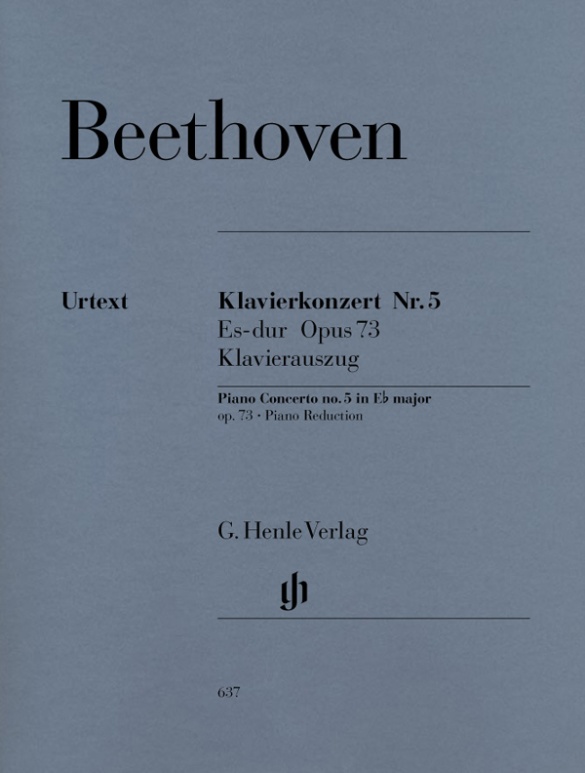
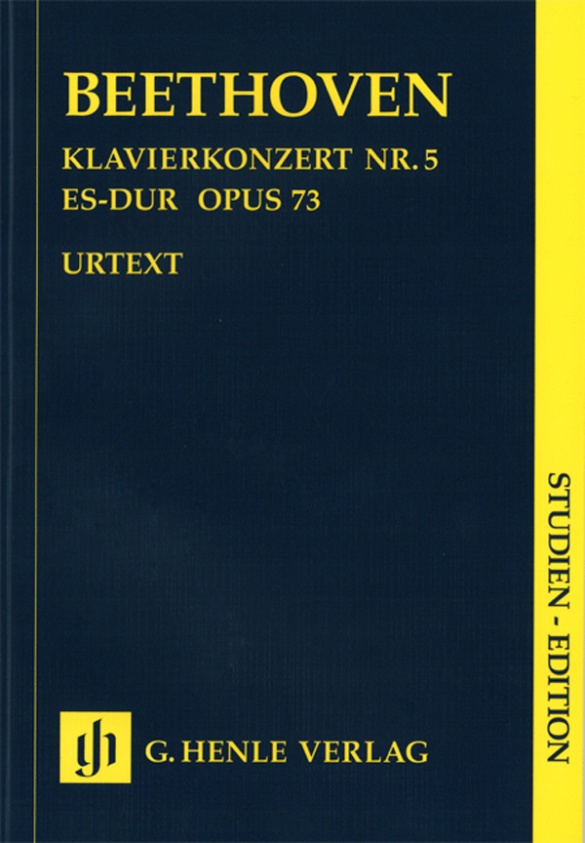

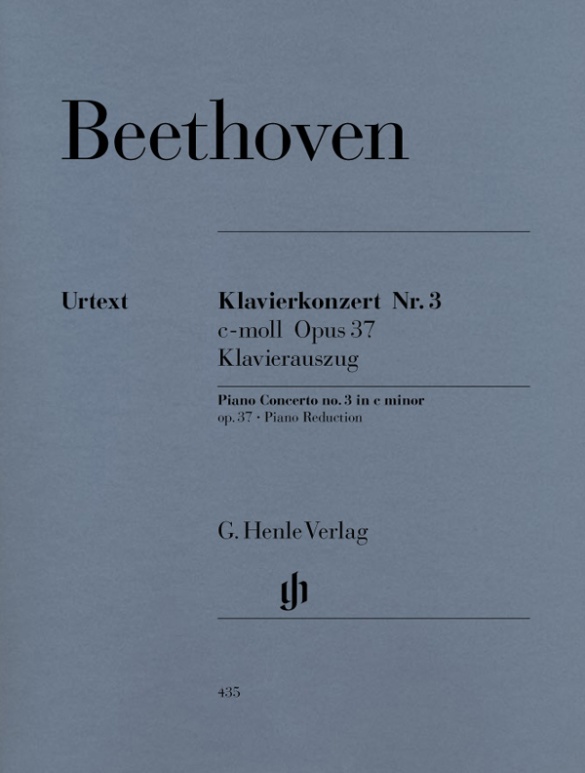
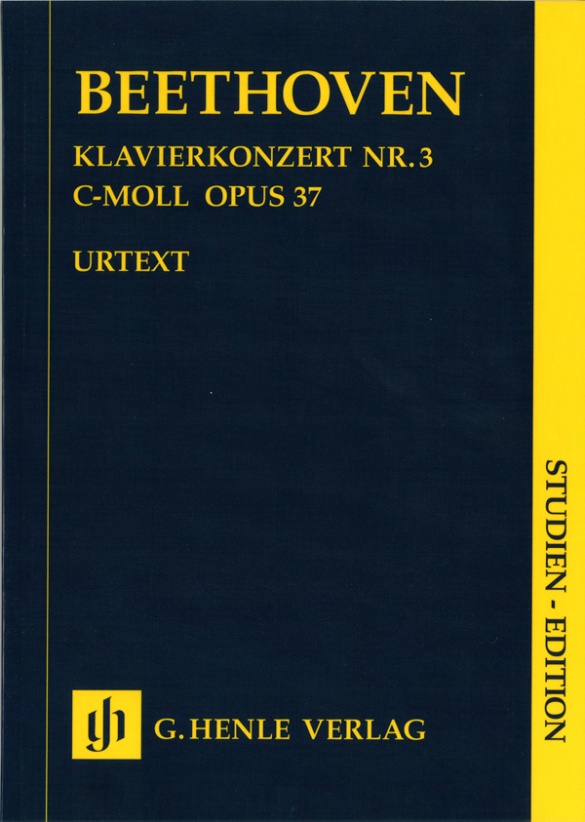
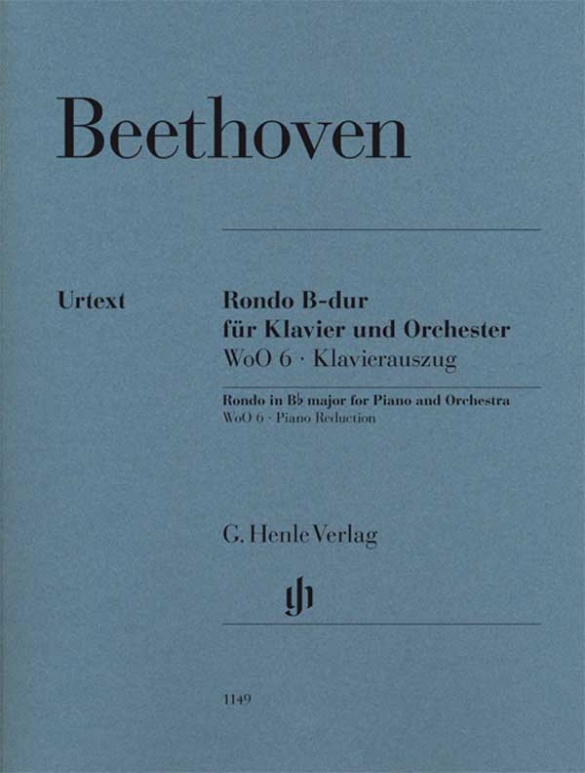
Orchestral material from Breitkopf & Härtel